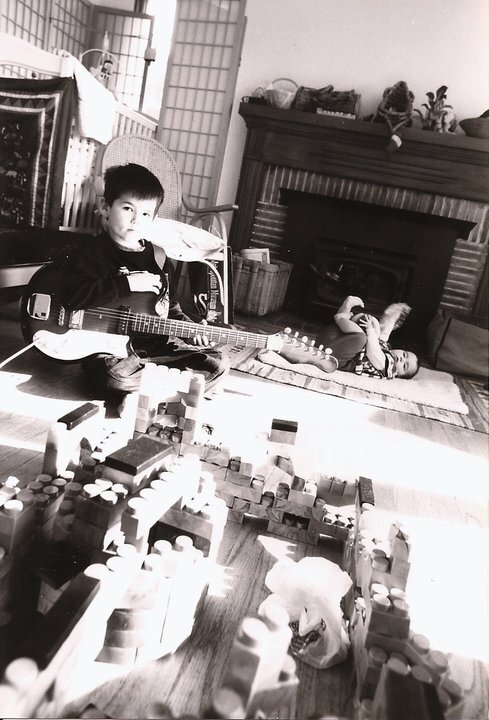Independent projects and creative experiments in radio, writing & film.
FILM
IMPROVISATION
A study of improvisation in content, mirrored in form. Original music improvised live by Gregory Uhlmann.
LEMONS
A girl who smells like lemons, a sniffer with a wandering mind...
7:02 PM, WEST ADAMS, LOS ANGELES
A one minute short doc filmed over the course of an hour for Modes of Making: Documentary course, Prof. Kristy Guevara-Flanagan, UCLA, January 2023.
BOUNDARY / THRESHOLD / ROOTS / FRAGMENTS
An experimental documentary study exploring “body burden” for Gender, Justice, and the Environment course, Prof. Vanessa Agard-Jones, Yale University, April 2015.
Director of Photography - Eamon Adachi
All music by Michael Price and aerial video shot by Steve Mostovoy.
RADIO
Photo by Shizue Roche Adachi
CHASING COWS & SUSTAINABILITY
A 6-part mini-series aired on Heritage Radio Network as part of Summer of Food. This audio journal follows my summer working as a farm and ranch hand at the James Ranch in Durango, Colorado.
Produced by Eddie Shumard for Heritage Radio Network.
Photo by Peter Thomson, Lee Newspapers
A LOT OF DAMN WORK
Paul Buhr farms the way everyone used to farm in Wisconsin - with a small herd of dairy cattle and a single hired hand. But his small, family dairy farm is fast becoming a relic of a bygone era. In this intimate audio portrait, Paul shares his experience watching farms like his being squeezed out by sprawling corn and soy farms and thousand-cow dairies. A heartbreaking reflection of a committed steward to his land, Paul shares how this large scale takeover of the Midwest has meant that a life once defined by community and shared labor has become one of grit and a fight to survive.
Photo by Lindsay Rush
FARMING WITHOUT LABELS
As heard on NHPR and WESM.
“Organic,” “Locally-grown,” “Certified Humane,” “GMO-Free." We've all seen the labels stamped on packages of chicken breast at the grocery store or chalked onto signs at the farmers market. We all want to eat healthy, nutritious food raised by good farmers. But do labels really give us an accurate picture? Is the certified organic beef from the supermarket a better choice than the not-certified beef sold by a local farmer at the farmers’ market? Intuition seems to tell us no, but I decided to put the question to the test and headed out to Morris, Connecticut to talk to farmer Tom Truelove, who’s forgoing the labels in hopes of educating his community on what it actually means to produce local food.
Photo by the Yale Sustainable Food Program
An Education In Honest Living
As heard on WRST.
Jeremy Oldfield is the farm manager at Yale University's urban farm. After running away from the world of elite East Coast colleges for a farm in California that promised "real labor," he returned East to teach students how to farm a little closer to home. In this short audio portrait, Jeremy reflects on the moral absolutes of his angsty 20s and how ten years has changed his relationship with farming, and with himself.
By Roche Adachi Family
Really, I’m Trying
What happens when your sibling becomes a stranger to you? In this short piece, I share the story of a cross country road trip and younger sister’s desperate attempt to reacquaint herself with the brother she once knew, only to realize it might not be so simple a task
WRITING
RETHINKING FOOD CULTURE MIGHT SAVE US
Co-authored with Jovida Ross and Julie Quiroz for the Nonprofit Quarterly, Fall 2022.
…systems and practices do not exist in a vacuum; they are an expression of the culture that underpins them. As many Black, Indigenous, and diasporic people of color food leaders have long asserted, dominant food narratives—from bootstrapping to “you are what you eat” diet shaming—often explicitly affirm logics of individualism, ignoring structural inequities and oppression and perpetuating support for massive globalized, profit-driven food industries that kill people and destroy ecologies.4 To transform our food system, address our legacies of harm, and interrupt our reckless relationship to ecosystems, we need to look beyond food supply chains to the culture underpinning how we produce and share food.
Photo by Andy Radtke
FORGETTING THE FLOODS, KEEPING THE FAITH
Feature story in Edible Madison, Winter 2018.
“Here for a bit of dark tourism?” Tucker Gretebeck asks me with a half-hearted chuckle. It’s October and the leaves have fallen, the memory of summer quickly receding. I’m standing on the edge of what had been a field, in the shadow of where Tucker’s 150-year-old tobacco barn had stood. It’s difficult to describe the enormity of the destruction that is before me. Stream banks are torn away to reveal 25-foot cutouts. Boulders lie scattered haphazardly alongside great piles of dead trees. Warped metal juts out of sand that has smothered the soil. And tractors and hay wagons lie crumpled and battered around me, scattered like a child’s discarded play things…
Photo courtesy of Wonderstate Coffee
BLOG POSTS FOR WONDERSTATE.COM
Assorted articles on race, equity & gender, as well as artist profiles and coffee recipes.
The Long Shadow of Inequity & A New Story of Coffee
Coffeewomxn Unite!: Challenging Gender Bias Across the Supply Chain
Absurdity, Hope & Everything In Between, with Artist Landon Sheely







